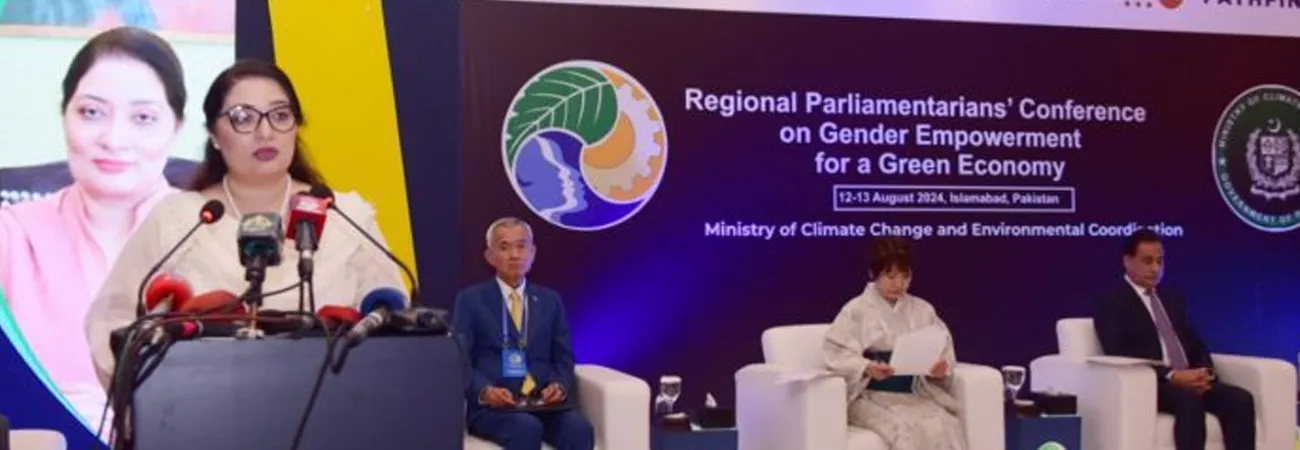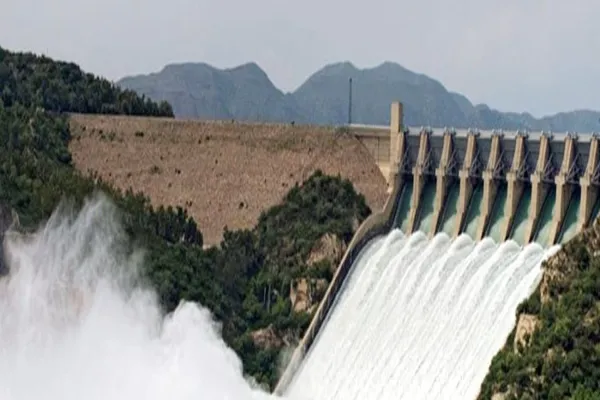i NEWS PAKISTAN
Islamabad, August. 13 (INP) -- To achieve the goals of the green economy in the Asian countries, gender inequality and women empowerment is necessary to address, said Coordinator to Prime Minister on Climate Change Romina Khurshid Alam while addressing the concluding session if the regional parliamentarians’ meeting. She said, “Without achieving women’s empowerment and addressing gender equality in Asian countries, which is extremely vulnerable to climate risks, achieving a green economy goals was not possible. It is deeply heartening to note that participating parliamentarians from the 20 Asian countries unanimously voted for the declaration, demonstrating political will and commitment of their respective governments to implement it letter and spirit for enhancing women’s empowerment in all socio-economic aspects.”
She said that Because, for being geared to support sustainable consumption and production, low-carbon economic growth, resource-conserving, diverse and circular, the green economy goals particularly focus on the socio-economic empowerment of women and tackling gender equality in all sectors of the economy and society. Romina Khurshid said, “Uneven access to education, uneven access to education lack of employment opportunities, job segregation, poor medical care, absence of pro-women empowerment and gender equality societal mindsets are among the key roadblocks to achieving the socio-economic women empowerment and gender equality. She urged the parliamentarians to strengthen their role as legislators to deal with the drivers of the gender inequality and poor representation of women in socio-economic sectors”.
12–point Islamabad Declaration on Gender Empowerment for Green Economy In line with our role as parliamentarians, we:
I) Reaffirm our commitment to the Programme of Action of the International Conference on Population and Development (ICPD) and the 2030 Agenda for Sustainable Development as pathways to achieve an equitable future for all;
II) Acknowledge the grave impacts of environment/climate change and global heating, particularly to promote policies and legislations.
III) Commit to building resilient individuals, communities and societies, and investing in emergency preparedness, anticipatory actions, and targeted disaster risk reduction plans for the females, migrants, minorities and refugees, and other groups.
IV) Recognize the importance of data and evidence collection, analysis, and dissemination, focusing on the needs of the said.
V) Highlight the importance of promoting women’s empowerment;
VI) Work with national parliaments to address harmful social and gender norms limit the potential of previously described groups;
VII) Promote enabling environments that eliminate discrimination against females and all mentioned marginalized groups;
VIII) Recognize the invaluable contributions of females and marginalized communities in addressing the impact of climate change, and the need to leverage their experiences in disaster recovery and climate strategies;
IX) Reaffirm to pay careful attention to the needs and rights of all the said people everywhere, especially in disaster zones;
X) Take affirmative action to develop a model or common legislation that places solidarity with the women, and girls and adolescents at the center with respect to their rights;
XI) Collaborate on developing policies and strategies to address the females and described groups in resilience-building efforts.
XII) Recommit to working with all stakeholders, development partners: civil societies, government departments at all levels national, regional and global fora to implement the ICPD Programme of Action and the 2030 Agenda.
Credit: Independent News Pakistan (INP)









